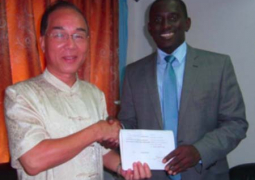ECOWAS ministers responsible for nationality issues on Tuesday adopted a Regional Plan of Action to Eradicate Statelessness in West Africa also known as the Banjul Plan of Action covering 2017 – 2024.
The implementation of the plan of action is expected to contribute to the eradication of the phenomenon of statelessness in Africa.
And as stated by the Special Representative of the UN secretary general for West Africa and the Sahel, the successful implementation of the plan of action would greatly help to prevent statelessness and “redeem millions of West Africans from being vulnerable to marginalised living, exploitation by criminal groups, risk of human trafficking and political and religious radicalization”.
This, as noted by the ECOWAS ministers responsible for nationality issues, would “enhance the stability of the state”.
The Banjul Plan of Action, which is based on commitments and recommendations made in the Abidjan Declaration in February 2015, is therefore worth commended.
The millions of people around West Africa and the continent at large would start to feel belonged and see themselves more catered for by their fellow human beings.
Writing about those at risk of statelessness, Bronwen Manby says in his article titled: ‘Statelessness in Africa: the scale of the challenge and the opportunities for leadership’ that: “Firstly, there are migrants no longer living in their ‘original’ communities. Among these, perhaps the most important group are those who migrated before independence, and their descendants…
“Then there are the cross-border populations, where the colonial powers drew lines on maps that completely disregarded commonalities of language, culture, religion, lifestyle - or even geography (since the lines were largely drawn in 1885 in Berlin, many thousands of kilometres from the geography in question)…
“Finally, there are children who cannot obtain recognition of the nationality of (one of) their parents, whether because of discrimination on the basis of gender or birth out of wedlock, or because their parents are not known, or because their parents are themselves not documented, or because their births were not registered in time, or because they are separated from their parents by war or as child workers trafficked to another country. These children - who of course become adults - are not an identifiable ‘community’ but they are scattered throughout Africa and found at the margins of every society.”
We therefore applaud the move to adopt the Banjul Plan of Action by the ECOWAS ministers responsible for nationality issues, as this is part of ensuring human rights and concern for lives.
“Today, at least 10 million people around the world are denied a nationality”
UNHCR


